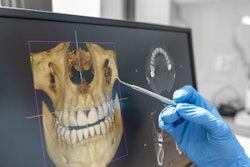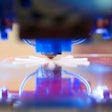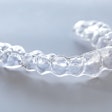Researchers from the University of Connecticut (UConn) have created a 3D-printed artificial mouth, offering a way to test oral hygiene products, implants, and regenerative therapies without the need for clinical trials.
The device, which was printed from the plant-based plastic polylactic acid (PLA), mimics the temperature, carbon dioxide levels, and geometry of a human oral cavity, making it optimal for testing without logistical and ethical obstacles, according to a university news release.
“It’s a powerful tool for advancing regenerative dentistry and antimicrobial testing,” Jon Balyeat, a biomedical engineering major at the university, said in the release.
The researchers began by designing the chamber and jaw assembly using CAD software. They 3D printed the device using PLA, a biodegradable, biocompatible plastic. PLA is derived from renewable plant sources and is ideal for modeling because it softens when heated and hardens as it cools. Some of the PLA teeth in the device are removable, allowing for site-specific studies.
The design also features a removable well plate that enables high-throughput testing. It includes an embedded heat sensor for temperature and gas control along with an integrated heater and air pump. The entire unit, including its electrical components, is housed within an incubator, according to the release.
Furthermore, researchers will introduce oral bacteria such as Streptococcus mutans to examine microbial growth under varying fluoride gradients and materials. They also plan to test stem cell implants, calcium phosphate-infused 3D-printed teeth, and tissuelike spinach leaves within the mock mouth system.
“It’s part of a broader effort to develop regenerative dental treatments that could one day restore natural tooth function,” Balyeat said.




















